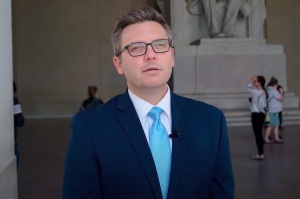Religious Groups Argue Against Healthcare Mandates
Federal policy makers remain divided on the Obama administration’s health care mandate that forces insurers to provide contraception coverage after hearing from Christian health care providers.
The rule is slated to go into effect next August, but several religious groups are hoping to change the clauses before the proposed mandate becomes law.
The groups argued in front of a Congress subcommittee Wednesday that the mandate would infringe on their “rights of conscience.”
The conscience clause allows medical professionals to opt-out of providing services that they find morally objectionable. Religious activists worry the new mandate will trample that right.
"Until now, federal law has never prevented religious employers, like the Archdiocese of Washington, from providing for the needs of their employees with a health plan that is consistent with the church's moral teachings," said Jane G. Belford, chancellor of the Roman Catholic Archdiocese of Washington.
Catholic teaching rejects artificial contraception as immoral, according to some Catholic groups, which are arguing that the new mandate would force providers to act against their faith by providing contraceptives.
It is a measure that affects a large swath of the population.
One of every six-hospital admission in the United States is to a Catholic hospital, according to the U.S. Conference of Catholic Bishops
Republican leaders are using the issue to try to chip away at the health care reforms, citing the choice between following the law and following religious beliefs some employers may face.
"Groups, who have for centuries cared for the sick and poor, will now be forced to violate their religious beliefs if they want to continue to serve their communities," said Rep. Joseph R. Pitts.
The new rule, while not requiring individual doctors to act against their faith, would mandate that employers provide healthcare cover all procedures. Catholic hospitals, religious universities and charities fall under that umbrella.
Not all Catholics oppose the new mandate, though. Catholics for Choice President Jon O'Brien said the opposition is a minority viewpoint.
Democratic leaders maintain that the conscience clause will remain in tact, but institutions should not be able to impose their views.
"This issue of conscience is so important, I consider it as an individual right," said Rep. Jan Schakowsky. "Why should an employer decide for a woman whether she can access the health care services that she and her doctor decide are necessary?”
Supporters of the measure argue that allowing some employers to opt-out would negate the intended benefits of the bill, which aims at expanding health care services to more people.
"Why are we talking about allowing some employers to put up a barrier to access at a time when women are struggling to afford and access health care?" Schakowsky said.




























